Laying It on Thick With Specialized Coatings
Phygen coatings offer low friction, high hardness and exceptional wear resistance to extend tool life.
While conventional coatings are designed to extend the life of a tool by making it stronger, often quite the opposite occurs. High temperature chemical vapor deposition (CVD) and thermal diffusion (TD) processes used to apply hard wear-resistant coatings are able to change a tool's critical dimensions and mechanical properties. Many known low-temperature physical vapor deposition (PVD) processes typically suffer from insufficient adhesive and cohesive strength and might create substantial stresses below the tool's working surface, which result in a reduction of fatigue strength. Excess wear leads to premature tool repair, and the tool can often become distorted after that.
According to Dave Bell, president of Minneapolis, MN-based Phygen, Inc. - a manufacturer of specialty coatings - the beneficial properties of high hardness, low friction and excellent wear resistance make carbides and nitrides of transition metals excellent materials for various thin film applications. "During the last ten years, thin, hard coatings deposited by physical vapor deposition (PVD) processes on engineering components - such as forming and cutting tools - have helped to substantially reduce tool wear and prolong tool life," he explains. "The coatings have permitted more cost-effective machining processes and helped to fulfill the increasing demands put on production processes in terms of performance, reliability and environmental compatibility."
Hard coatings' performance depends on the type of deposition technology used to apply the coatings, Bell points out. Many coatings - such as titanium nitride (TiN) or chromium nitride (CrN) - if produced by conventional coating technologies, cannot meet the improved industry standards.
Specialty Coating
Phygen developed a proprietary physical vapor deposition coating technology based on principles of plasma acceleration, which result in a higher plasma density and an intense low-energy ion bombardment during the coating deposition. The technology allows deposition of a wide variety of coatings (metals, alloys and compounds) and produces a Phygenr ST.3 SuperToughT Chromium Nitride Coating which exhibits superb hardness and wear resistance compared to conventional PVD and CVD-based or thermal sprayed coatings, Bell explains. "Phygen's technology provides a unique combination of the coating properties by creating a dense, non-columnar coating structure having the highest possible adhesion level to virtually any substrate material," he says. "The microstructure of the coating is precisely controlled by proprietary process parameters. As a result, this coating actually constitutes a single-phase, stoichiometric, nanocrystalline chromium nitride having a highly textured, dense structure. The fine-grained structure and high cohesive strength of these chromium nitride coatings allow the deposition of extremely tough and hard coatings - which possess much higher abrasive wear resistance than provided by conventional PVD processes."
Additional Features
- Less brittle than conventional hard coatings and may withstand much higher mechanical loads than conventional coatings
- Microhardness that exceeds that of conventional PVD CrN coatings
- Exceptional abrasive wear resistance due to the combination of high hardness and toughness
- Low friction properties (coefficient of friction less than 0.1) under properly lubricated conditions and in an oxidizing type of environment
- Chemically and thermally stable in the air up to at least 1,550'F
- Excellent corrosion resistance properties and chemically inert because of their dense, noncolumnar microstructure
- Does not change critical dimensions of properly heat-treated tools or precise components
- Can be easily (and with no harm to the substrate) stripped at the end of useful tool's life and the tool can then be repaired, refinished and coated again using Phygen's technology
"Phygen's coatings have been extensively investigated during the last few years at major U.S. National Laboratories and leading research institutions," Bell notes. The research conducted by Othon Monteiro at Lawrence Berkeley National Lab (Berkeley, CA) confirmed stoichiometric chemical composition of the coatings (see Figure 1). No presence of any other crystallographic phases had been found. Scanning Electron Microscopy (SEM) analysis performed by scientists at Argonne National Lab (Argonne, IL) revealed noncolumnar, equiaxially grained microstructure of the coatings .
John Woodford, and Mohumad al-Zoubi - both Ph.D.s at Argonne National Laboratories - recently conducted a study of Phygen coatings and found that the coatings exhibited high toughness and wear resistance. They studied three samples of hardened H-13 steel flats - each coated with different process formulations and compared them to an uncoated flat. The three CrN-coated flats and one uncoated flat were subjected to an endurance wear test in the presence of synthetic diesel fuel. The tests were conducted in a Cameron-Plint high-frequency rig, which reciprocates (moves the flats back and forth) under a fixed 0.25-inch 52100 steel ball carrying a load of 10 Newtons.
Woodford reports that the friction coefficient traces for the three different coatings were then examined. All three coatings showed a reduction in friction over uncoated steel. Sample one showed the least improvement, but was still 20 percent better. Sample two exhibited the lowest average friction coefficient with an average value of 0.09. Phygen's sample three had the best consistency in friction coefficient and had only slightly higher friction coefficient on average than sample two (see Figure 3).
Upon examination, the three coated flats showed no sign of wear, according to Woodford. The uncoated flat had a distinct wear track, but optical profilometry showed it to be partially filled with material transferred from the ball. Because of this, it was impossible to measure wear rates on the flats.
Success Stories
Out in the field Phygen also has proven successful. Harvey Bruce, moldmaker and coatings specialist for Thermotech (Hopkins, MN) - an engineered plastic injection molding company for the automotive, medical, electronics and communications industry - has been using the coating for two years. "We were looking for something that could stand up to high abrasion," Bruce explains. "We do a lot of high-tech parts, and there are actually minerals and really small strands of fiberglass in the plastic to give the parts strength. But what happens is that some plastics, minerals and fiberglass will attack and erode the steel. So we needed a coating that was able to stop that erosion."
According to Bruce, Phygen worked really well on the one tool they tried it on. "We then had another opportunity to use the coating," he recalls. "We had a instance where the plastic would just wear the mold out so quickly, so we tried Phygen. With the previous coatings, we would run twenty-six hundred shots in eight hours and would already see that the plastic was wearing out vents and the detail on the tool. Then we'd have to repair the mold. It was terrible. Since we applied the Phygen coating, it has made more than fifty thousand shots, which is about forty times the wear resistance. I pulled the tool off the shelf and looked at it and there was absolutely no wear on the tool. It's very impressive." Harvey also notes that the Phygen coating polishes easily and a high shine is achievable on the tool.
Square D Co. (Lincoln, NE) - a provider of Thermoset injection and injection compression molding - also has met with success using Phygen coatings. Molding Manager John MacKichan says, "We mold highly abrasive compounds with fiber glass content ranging from 9 percent to 25 percent. Over the years we have tried a wide variety of surface treatments to extend tool life, but even with the surface treatments, tooling wear is still a major issue."
In 2000 Square D began testing Phygen coatings on their high-wear tooling components. "The Phygen coating seems to work extremely well - even with our abrasive materials," says Chad Nadgwick, tool room manager. "We have tested Phygen-coated mold components in the most critical wear points, such as gate inserts and the liners on the injection compression molds with favorable results. The Phygen coating seems to be pretty remarkable."
The company also found that Phygen coating did not degrade the fine surface finish they put on the tools and it did not create any dimensional tolerance issues. Normally Square D's high-wear molds would be pulled for repairs after twelve months of production, Nadgwick notes, but the Phygen coating appears to have significantly extended the available production life of the tooling. Square D expects success with the Phygen coating to provide benefits of cost savings from decreased tool replacement and part quality enhancements.
Bill Strommen, president of Osseo, MN-based Strommen Engineering - a builder of close-tolerance plastic injection molds predominantly for the medical industry - has realized similar advantages. "We have found longevity of the tool to be the main advantage," Strommen states. "It feels as if it is going to last forever - it has very good wear characteristics compared to the TiN coating. It also has eliminated a lot of extra costs in repair - the TiN coating would wear out and the mold would come back to us for repair work." Additionally, Strommen notes that there is no buildup on the corners like in chrome plating, and the finish is excellent.
Strommen does recommend caution when it comes to heat-treating. "Since Phygen is applied at a 950x temperature, you have to be careful on which metals you put it," he states. "Different tool steels obviously heat treat at different temperatures and you have to be equal to 950x or above or else you will get warpage in your parts when they go through this treatment. The draw temperature should be more than 950x."
Bell and Strommen have been working together to test Phygen with other substrates. "We just ran a test on a silicone mold of ours and it has worked well," Strommen states. Bell adds that Phygen coating has exhibited "excellent" release properties with silicone.
In conclusion, Phygen coatings not only protect surfaces, they reduce friction and wear, which results in better mechanical properties and longer tool life.
Related Content
Advancing the Mold With New Technologies
This roundup is full of products and services that help answer concerns and meet needs for the industry. Featured in this roundup are hot runners, mold components, mold materials and more.
Read MoreCutting Tools: Technology to Make Your Process Easier
Having the right cutting tool technology for moldmaking is a crucial component for efficiency and cost-effectiveness.
Read MoreProducts and Services for Multiple Moldmaking Needs
New year, new technology roundup! Featured here is a collection of product offerings, from profile milling cutters to industry-specific CAD/CAM software to innovative hot work tool steels.
Read More6 Ways to Optimize High-Feed Milling
High-feed milling can significantly outweigh potential reliability challenges. Consider these six strategies in order to make high-feed milling successful for your business.
Read MoreRead Next
Maximize Machine Tool Potential With the Right Cutting Tools
Mold manufacturer seeks out cutting tools to match its machine tool technology, allowing them to operate at the highest levels of speed and precision.
Read MoreHow to Use Strategic Planning Tools, Data to Manage the Human Side of Business
Q&A with Marion Wells, MMT EAB member and founder of Human Asset Management.
Read MoreHow to Use Continuing Education to Remain Competitive in Moldmaking
Continued training helps moldmakers make tooling decisions and properly use the latest cutting tool to efficiently machine high-quality molds.
Read More
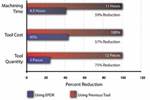


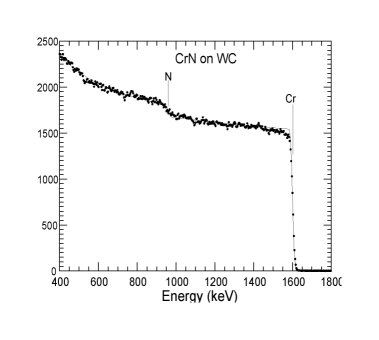
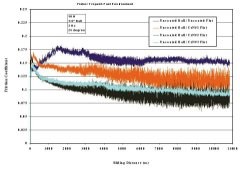




.jpg;maxWidth=300;quality=90)



_300x250 1.png;maxWidth=300;quality=90)









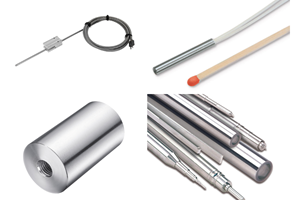
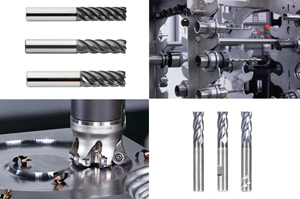
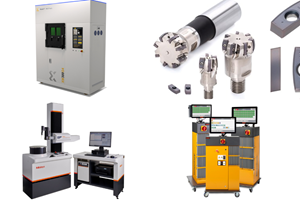
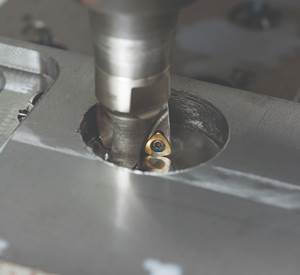
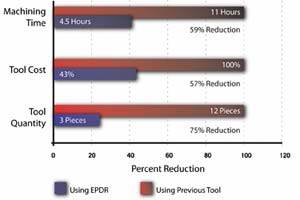


_970x250 4.png;maxWidth=970;quality=90)